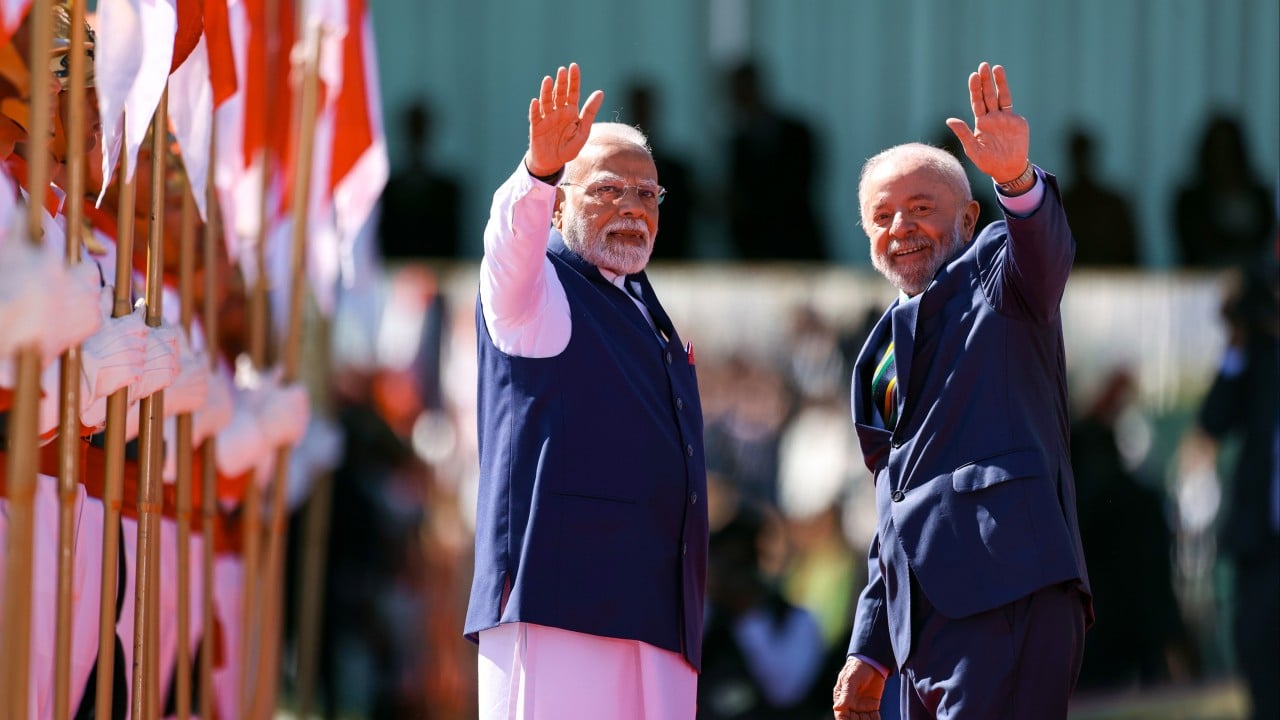Imagine a world where nations come together not just for economic gain but to defy a common foe. This is precisely what Brazil and India showcased recently as they pledged to triple their trade flows in a resounding display of unity against the formidable backdrop of the Trump administration’s aggressive trade policies. The meeting between Brazilian leader Lula and Indian Prime Minister Modi was not just about signing agreements and boosting trade; it was a symbolic gesture of solidarity in the face of external pressure.
The stage was set for this alliance as President Trump, known for his confrontational stance on trade, took aim at the Brics nations, which include Brazil and India, among others. Describing the US dollar as the “king,” Trump accused the Brics group of undermining American interests and devaluing the dollar. In a bold move, he threatened to impose a 10% charge on Brics members, signaling a shift towards protectionist measures in the global economic landscape.
Despite Trump’s rhetoric, the Brics nations have a history of standing together to resist external pressure and promote mutual cooperation. Originally composed of Brazil, Russia, India, and China, the group expanded to include South Africa, Egypt, Ethiopia, Indonesia, Iran, and the United Arab Emirates. This diverse coalition of emerging economies aims to challenge the dominance of Western-led institutions and foster a more equitable international order.
As tensions escalate, Trump continues to lash out at the Brics bloc, accusing it of pursuing “anti-American policies” and undermining US interests. However, the leaders of Brics have refrained from directly engaging with Trump’s provocations, choosing instead to focus on their shared agenda of promoting economic development and fostering South-South cooperation.
Amidst the geopolitical turmoil, the alliance between Brazil and India represents a strategic partnership that transcends mere economic interests. It is a statement of defiance against unilateralism and a reaffirmation of the importance of multilateralism in today’s interconnected world.
The recent commitment to triple trade flows between Brazil and India not only signifies a deepening of economic ties but also underscores the resilience of South-South cooperation in the face of external pressures. By strengthening their partnership, these two nations are not only enhancing their own economic prospects but also sending a powerful message to the world about the value of collaboration and unity in times of uncertainty.
As the global economic landscape continues to evolve, alliances like the one between Brazil and India serve as beacons of hope, demonstrating that solidarity and cooperation can overcome even the most formidable challenges.
In conclusion, the convergence of interests between Brazil and India in the face of external threats highlights the enduring importance of unity and collaboration in international relations. By standing together, these nations are not just advancing their own interests but also upholding the principles of mutual respect, cooperation, and solidarity that are essential for a more peaceful and prosperous world.









Leave feedback about this